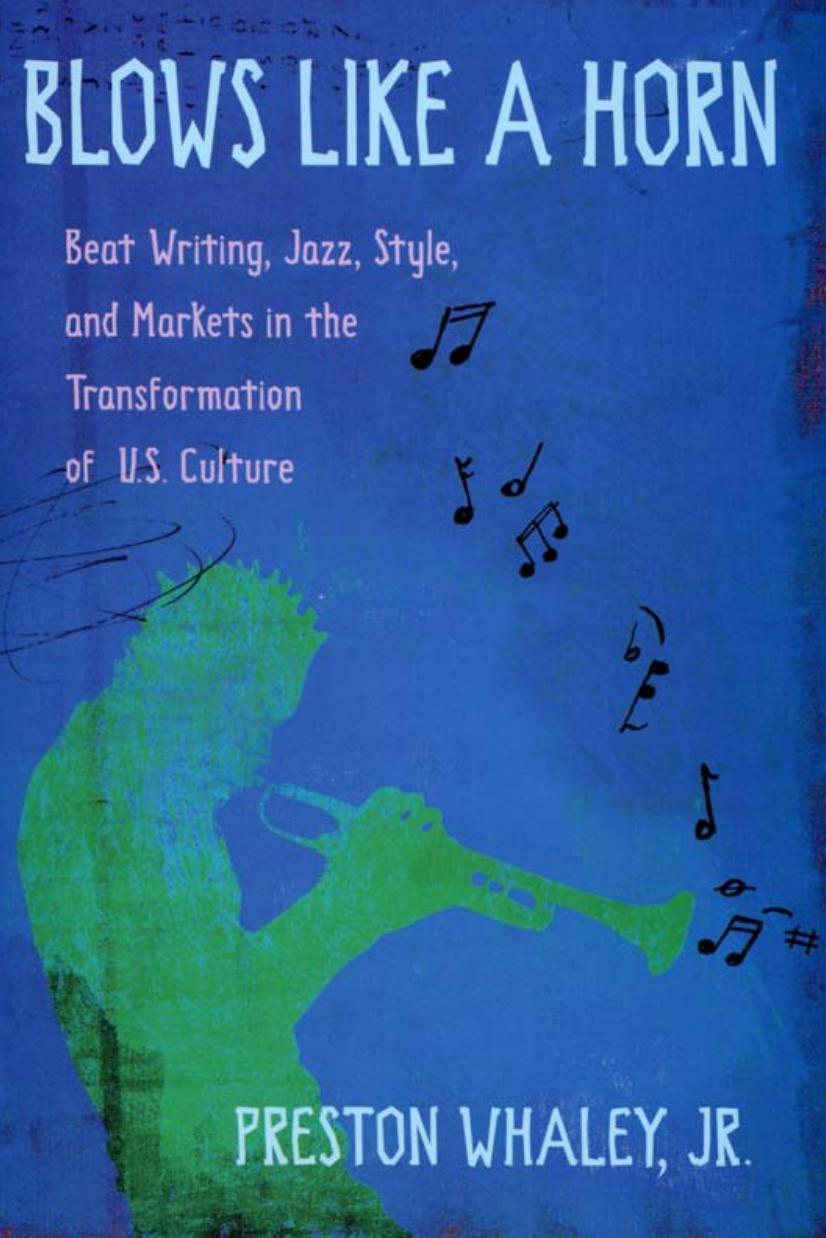Product desciption
Blows Like A Horn Beat Writing Jazz Style And Markets In The Transformation Of Us Culture Preston Whaley by Preston Whaley 9780674045125, 0674045122 instant download after payment.
Reopening the canons of the Beat Generation, Blows Like a Horn traces the creative counterculture movement as it cooked in the heat of Bay Area streets and exploded into spectacles, such as the scandal of the Howl trial and the pop culture joke of beatnik caricatures. Preston Whaley shows Beat artists riding the glossy exteriors of late modernism like a wave. Participants such as Lawrence Lipton, Lawrence Ferlinghetti, and at great personal cost, even Jack Kerouac, defied the traditional pride of avant-garde anonymity. They were ambitious to change the culture and used mass-mediated scandal, fame, and distortion to attract knowing consumers to their poetry and prose. Blows Like a Horn follows the Beats as they tweaked the volume of excluded American voices. It watches vernacular energies marching through Beat texts on their migration from shadowy urban corners and rural backwoods to a fertile, new hyper-reality, where they warped into stereotypes. Some audiences were fooled. Others discovered truths and were changed. Mirroring the music of the era, the book breaks new ground in showing how jazz, much more than an ambient soundtrack, shaped the very structures of Beat art and social life. Jazz, an American hybrid--shot through with an earned-in-the-woodshed, African American style of spontaneous intelligence--also gave Beat poetry its velocity and charisma. Blows Like a Horn plumbs the actions and the art of celebrated and arcane Beat writers, from Allen Ginsberg to ruth weiss. The poetry, the music, the style--all of these helped transform U.S. culture in ways that are still with us. Table of Contents: Introduction: Opening Measures 1. Horn of Fame 2. On the Brink 3. Celluloid Beatniks 4. Ready for Breakfast 5. Howl of Love Conclusion: The Horn Keeps Blowing Notes Credits Index Mr. Whaley, in this book, takes an academic approach to a subject that is just now beginning to attract scholarly interest. He thoroughly fleshes out a range of sources that span the artistic spectrum in order to give balance and objectivity to his treatment of American culture during the bebop and beat eras. The 1960s, with the Civil Rights Movement, the advent of hippie culture, and the protests against the Vietnam War, has long garnered attention from scholars, writers, musical historians, and filmmakers alike. In the popular conception of pop culture, the 1950s are often labeled boring or drab by comparison. Preston Whaley's analysis, however, will go a long way toward identifying the cultural movements of the 1940s and 1950s as part of a linear whole, a direct predecessor of the cultural revolution of the late 1960s.--Douglas Brinkley, author of World War II: the Axis Assault, 1939-1942This book has a nice exuberance and conviction, a consistent vision and a persuasively engaging tone. It has a winsome, masculinist, optimistic, expansive style that is reminiscent of beat literature itself.--Maria Damon, author of The Dark End of the Street: Margins in American Vanguard PoetryWhaley's Blows Like a Horn made me want to read ruth weiss, see The Subterraneans, reread Visions of Cody and well, I already listen to Coltrane and read Howl all the time .. but these are signs to me of a very effective book. Whaley wants to find a new way of talking about the Beats and post-Beat culture, one that doesn't fall into the rhetoric of liberation and resistance that is so common in the analyses of this genre, or to the cultural studies critiques of the beats that have pointed out the movement's appropriation by the hegemonic structures of Western, white, patriarchal, hetero capitalism and left it there. Whaley looks for a hitherto ignored space in Beat culture in which the aspirations, experiments and prejudices of the Beats can be directly related to precisely the kind of struggles that cultural studies itself is engaged in as a field. The Beats may not solve all problems, but they are aware of many of them, to varying degrees. There's a subtle, improvisatory quality to Whaley's writing that mirrors the kind of in situ politics and aesthetics that he's trying to evoke in Beat culture. He moves between high and low, personal and theoretical as the situation needs. He talks to the reader directly. There's a refreshing directness here, a willingness to address fundamental human situations.--Marcus Boon, author of The Road of Excess: A History of Writers on Drugs
ISBN : 9780674045125


